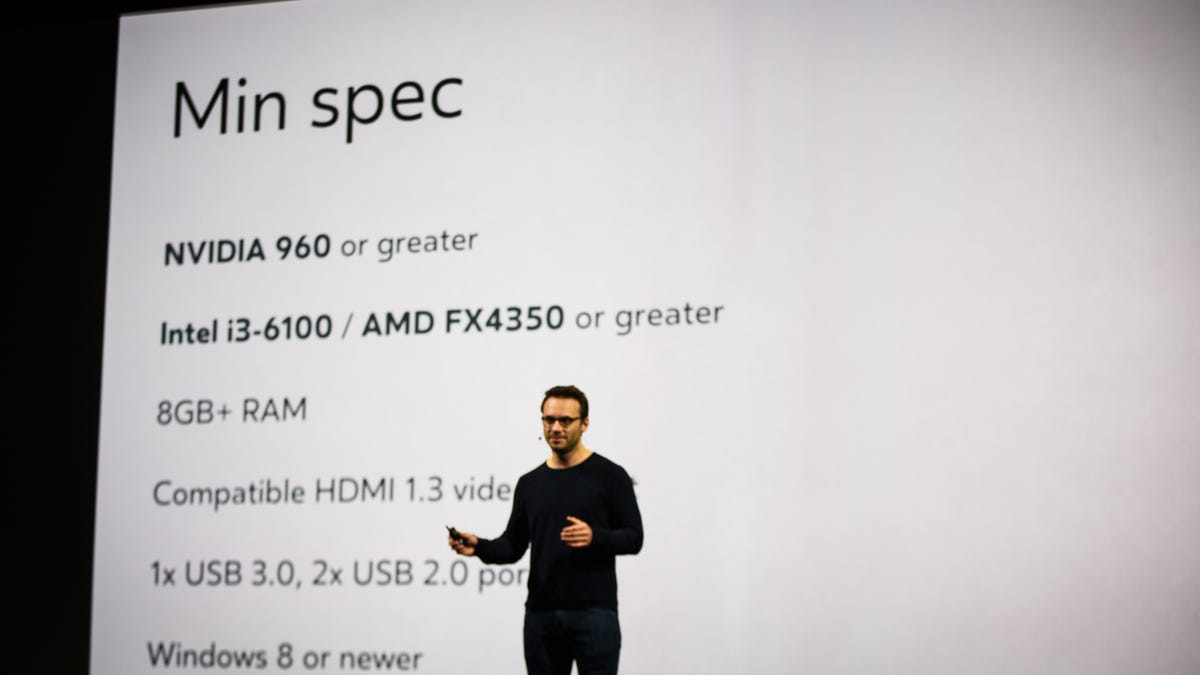Oculus drops price of VR-ready PCs to $499
Oculus says you no longer need a pricey PC to enjoy virtual reality. But lowering the minimum spec has its risks.
If you want the absolute best VR experience, an expensive PC comes to mind. That's why the PlayStation VR, which requires only a PlayStation 4 game console, is so impressive. Today, though, Oculus says it's lowering the minimum requirements for PC-based VR so more people can get in on the action.
Now an Oculus-ready PC will start at $499.
Or if you're building a PC yourself, Oculus says you'll need only a dual-core Intel Core i3 processor and an Nvidia GTX 960 graphics card, instead of the quad-core Intel Core i5 chip and more powerful GTX 970 graphics that were required before. More AMD CPUs are also now supported.
Oculus CEO Brendan Iribe announced the move Thursday at the company's Oculus Connect developer conference.
"PC VR is more affordable than ever," said Iribe, who added that Oculus is now certifying VR-ready laptops from partners Alienware, Asus, Lenovo and Aorus (a division of Gigabyte).
"Within years, there will be hundreds of Oculus-ready laptops," he said.
The move to make VR more affordable doesn't come without risks. Some VR titles already struggle to run properly at the company's previously announced recommended spec, and it's not clear if all games will run at the new one. (It's a big problem when games struggle to run properly in VR, because they won't be as immersive, and they can make some players sick.)
It's possible the low starting price of the PlayStation VR and the outcry about expensive PCs forced Oculus to lower the spec. We'll see if the company ends up regretting it.
Update, 5:03p.m. PT: In an interview with Oculus VP Nate Mitchell, he clarified that new performance optimizations in the Oculus SDK, including a new technique called asynchronous spacewarp, has allowed Oculus to run the exact same games properly with less capable hardware, without any developer involvement necessary to patch their existing games.
"For [a GeForce GTX 960] min spec it's basically all just going to work out of the box," said Mitchell, who added that these performance improvements should arrive as part of a software update sometime before the December launch of the Oculus Touch controllers.
Full disclosure: My wife works for Facebook, owner of Oculus, as a business-to-business video coordinator.


